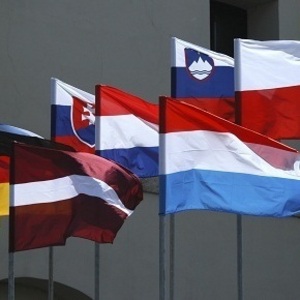ePURE criticizes EU energy security plan for neglecting ethanol

June 5, 2014
BY Erin Krueger
The European renewable ethanol industry association, ePURE, recently spoke out to criticize a new European Energy Security Strategy that fails to recognize the importance of domestically produced ethanol in meeting the European Union’s energy security needs.
The energy security strategy was announced by the European Commission on May 28. It calls for the diversification of external energy suppliers, infrastructure upgrades, completing Europe’s internal energy market and measures to save energy. While the plan does call for further deployment of renewables, is does not address ethanol.
“The omission of such a crucial element of a secure energy supply for Europe in the future is shocking. Since 2003, EU ethanol producers have generated 34.3 billion liters of green transport fuel – produced here in the EU - replacing the need for 113 million barrels of imported oil and saving the EU oil bill EUR 7 billion in the process,” said Rob Vierhout, secretary general of ePURE.
Vierhout noted there is considerable untapped potential for European ethanol production. By 2020, he said an additional 151 million barrels of oil could be replaced by European-produced ethanol if that potential is realized.
Advertisement
“The use of domestically produced renewable ethanol is a key weapon in tackling the EU’s chronic dependence on imported energy. It is utter madness to try to construct a holistic energy security policy while leaving completely aside a proven, ecologically advantageous, 100 percent European option, which only requires regulatory certainty against which to invest,” Vierhout continued. “We call on the European Council and newly elected European Parliament to steer the process of developing a more credible and effective EU energy security strategy; one which recognizes renewable ethanol as a vital component of the EU’s renewable energy mix.”
Advertisement
Related Stories
The U.S. Energy Information Administration maintained its forecast for 2025 and 2026 biodiesel, renewable diesel and sustainable aviation fuel (SAF) production in its latest Short-Term Energy Outlook, released July 8.
XCF Global Inc. on July 10 shared its strategic plan to invest close to $1 billion in developing a network of SAF production facilities, expanding its U.S. footprint, and advancing its international growth strategy.
U.S. fuel ethanol capacity fell slightly in April, while biodiesel and renewable diesel capacity held steady, according to data released by the U.S. EIA on June 30. Feedstock consumption was down when compared to the previous month.
XCF Global Inc. on July 8 provided a production update on its flagship New Rise Reno facility, underscoring that the plant has successfully produced SAF, renewable diesel, and renewable naphtha during its initial ramp-up.
The U.S. EPA on July 8 hosted virtual public hearing to gather input on the agency’s recently released proposed rule to set 2026 and 2027 RFS RVOs. Members of the biofuel industry were among those to offer testimony during the event.
Upcoming Events










